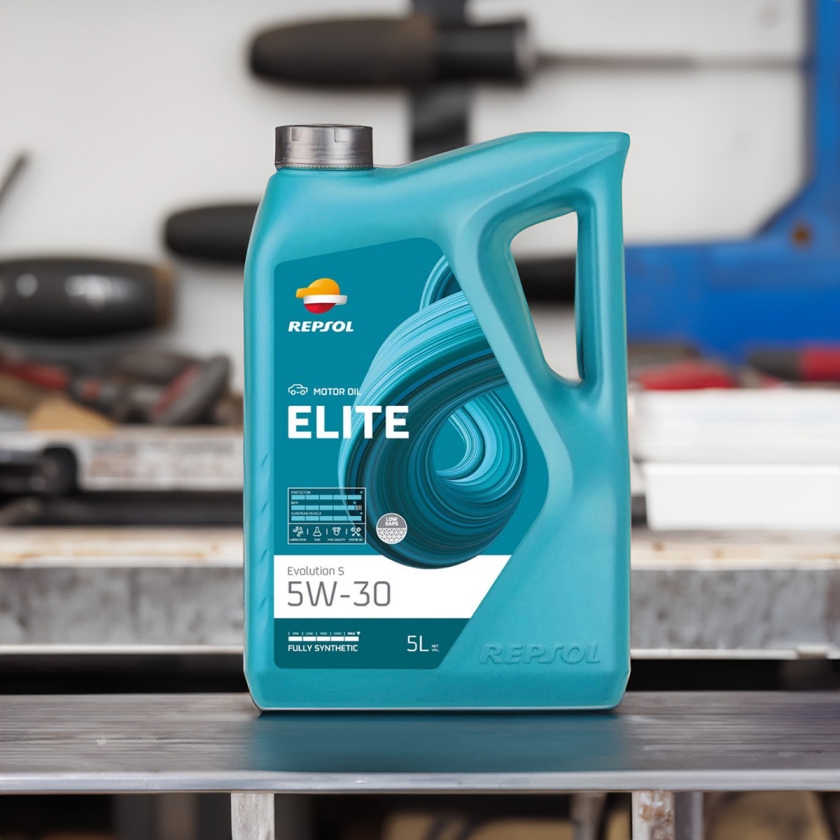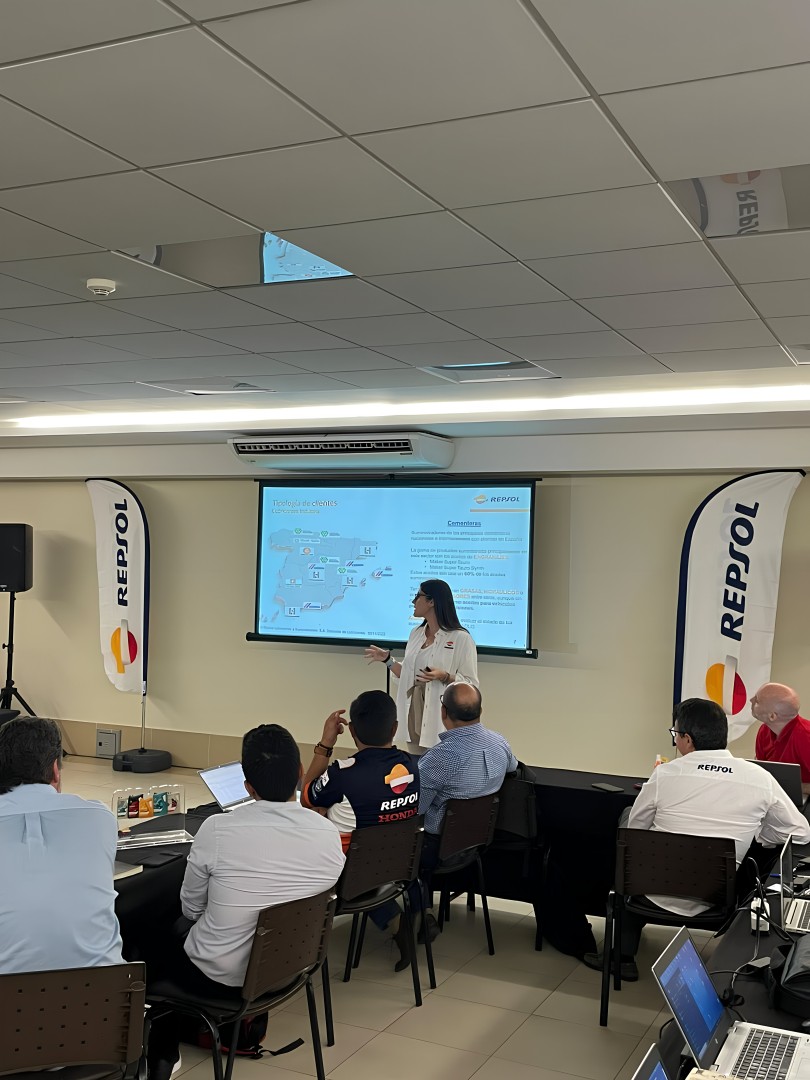Maker Agrocad 10: the Repsol innovation that revitalizes Peruvian crops

Tacna's olive groves, which account for more than 70% of Peru's national production, have been the site of an experiment that could change the way agricultural pests are controlled. There, Repsol Lubricants has tested Maker Agrocad 10, a biodegradable synthetic oil that promises to serve as an alternative to traditional pesticides, offering an effective and environmentally friendly alternative.
The problem: when caterpillars threaten the harvest
In the district of La Yarada - Los Palos (Peru), farmers are well aware of who their enemy is: the Olive Moth (Palpita unionalis), a green caterpillar that turns into a white butterfly but which, in its larval phase, devours the tender buds of the olive tree, feeding on the leaves and drying and weakening the plant.
The impact goes beyond the visible damage. In severe cases, these larvae can even damage the fruits, eroding them down to the pit. For young seedlings, the result is deformation and stunted growth that compromises future productivity.
The solution: a synthetic adjuvant oil
Faced with this scenario, Repsol Lubricants has opted for Maker Agrocad 10. It is a synthetic adjuvant oil with a formulation based on highly refined paraffinic bases, which gives it a fundamental characteristic: biodegradability, with a degradation of more than 50% in 28 days, according to OECD 301b.
Furthermore, the viscosity is just 8 centistokes at 40°C, which makes it "quite fluid", explains Italo Velásquez, technical coordinator of Repsol Lubricants in Peru. "Therefore, it is easier to emulsify it with water so that it can be applied to seedlings, plants, and the fruit in general," he added.
The key to its effectiveness lies in a physical mechanism of action. Unlike chemical insecticides that act through toxicity, Maker Agrocad 10 emulsifies easily with water. When applied to plants by spraying, it forms a thin film that drowns the insects, interrupting their breathing and controlling the pest without resorting to aggressive chemical components. "We want to recommend fluids as pesticides to eliminate pests using a more biological technology, which is saturation: the insect suffocates when it is hit with the oil spray," Velásquez continues.
Promising results for the future of crops
The experiment began with 14 selected olive seedlings, applying the product every three days with a backpack sprayer. The results were so encouraging that the treatment was extended to 50 additional seedlings. Not only were the caterpillars killed, but revitalization and new growth were also detected in the treated plants, which had been in a state of deterioration.
The versatility of Maker Agrocad 10 was confirmed when the team decided to test in other farms. For example, in pear trees affected by the Pear Sucker (Cacopsylla pyricolla), a pest similar to greenflies that cause the dreaded "sooty mold", the result was an increase in healthy fruits after five applications. Also worth mentioning are the cases of pepper plants and the bay laurel tree, which responded positively to the treatment, showing the product's ability to adapt to different types of crops and pests.
The success of this project represents an important advance for agriculture, especially in a context where it seeks to reduce the use of aggressive chemicals. "We are still at an early stage, but the results are very promising," says Velásquez. This project highlights Repsol's ability to develop solutions tailored to the specific needs of each sector, as well as the crucial role of collaboration and field research in driving innovation.
Related content



